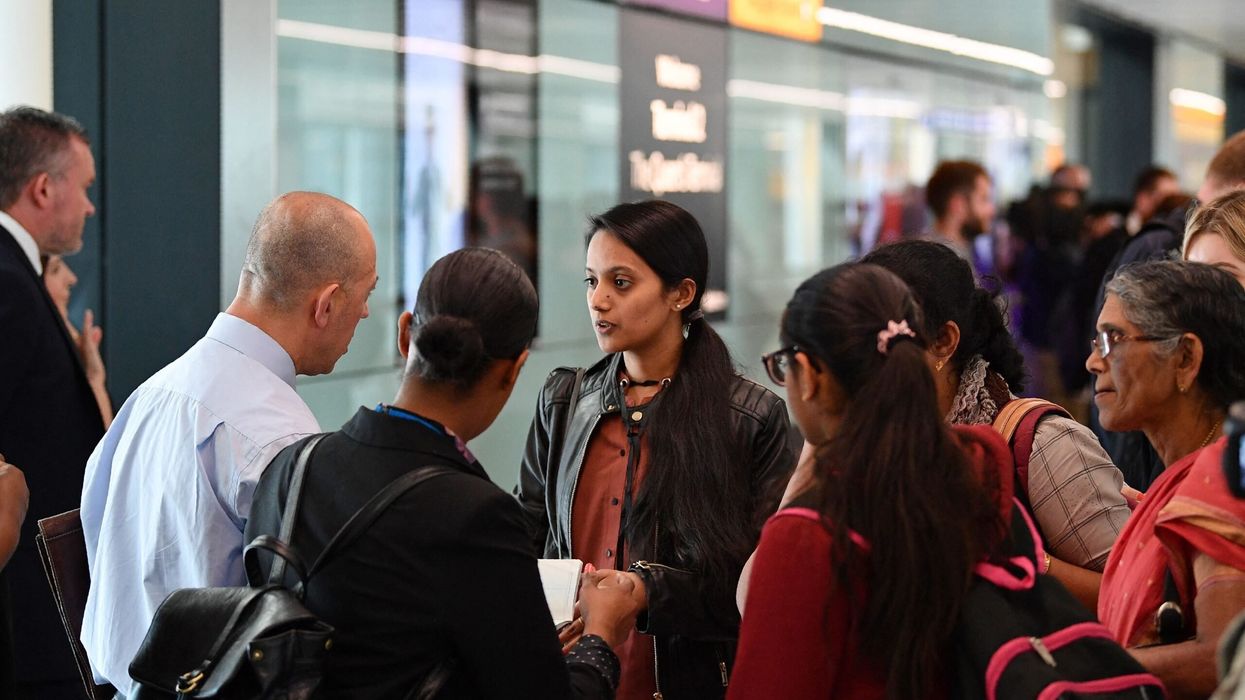CAMPAIGNERS have questioned if the government department supporting victims of forced marriages is “fit for purpose” after official data suggested that there has been a significant drop in cases in the UK in recent years.
The Forced Marriage Unit (FMU), a joint initiative between the Home Office and the Foreign, Commonwealth and Development Office (FCDO), released its annual figures last Thursday (9).
It stated that it dealt with 280 cases of forced marriage and 519 enquiries last year, which is 16 per cent lower than in 2022.
Yasmin Khan, founder of the Halo Project, which tackles forced marriage and honour-based violence, told Eastern Eye these figures are just the “tip of the iceberg”.
“This by no means is a true reflection of the scale of incidents that are happening in England and Wales,” said Khan, a national advisor to the Welsh government on violence against women. “At the Halo Project, we have seen not only an increase in referrals of victims who are in need of support and help having experienced forced marriage or honour-based abuse, but their cases are more complex, and their risks are higher.”
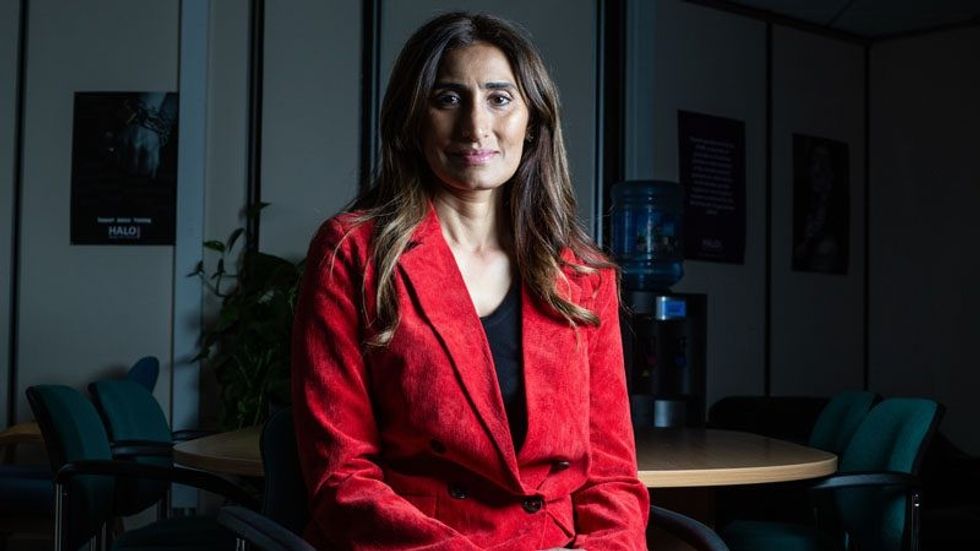
The government’s data shows the number of people who received advice or support from the FMU has dropped significantly year-on-year since 2019 - when it was 1,355 cases.
“This just goes to show that the government figures are not really what organisations like ours are experiencing,” said Khan.
“It's okay that we've got these statistics, but by no means should it be a definitive statement on the number of women or men effected by honour-based abuse of forced marriages.”
Karma Nirvana supports victims and campaigns to end honour-based abuse in the UK. They have witnessed an increase in the reporting of forced marriages since the pandemic, and provided support to a total of 2,346 cases in 2022-2023, including 417 people who were facing forced marriage.
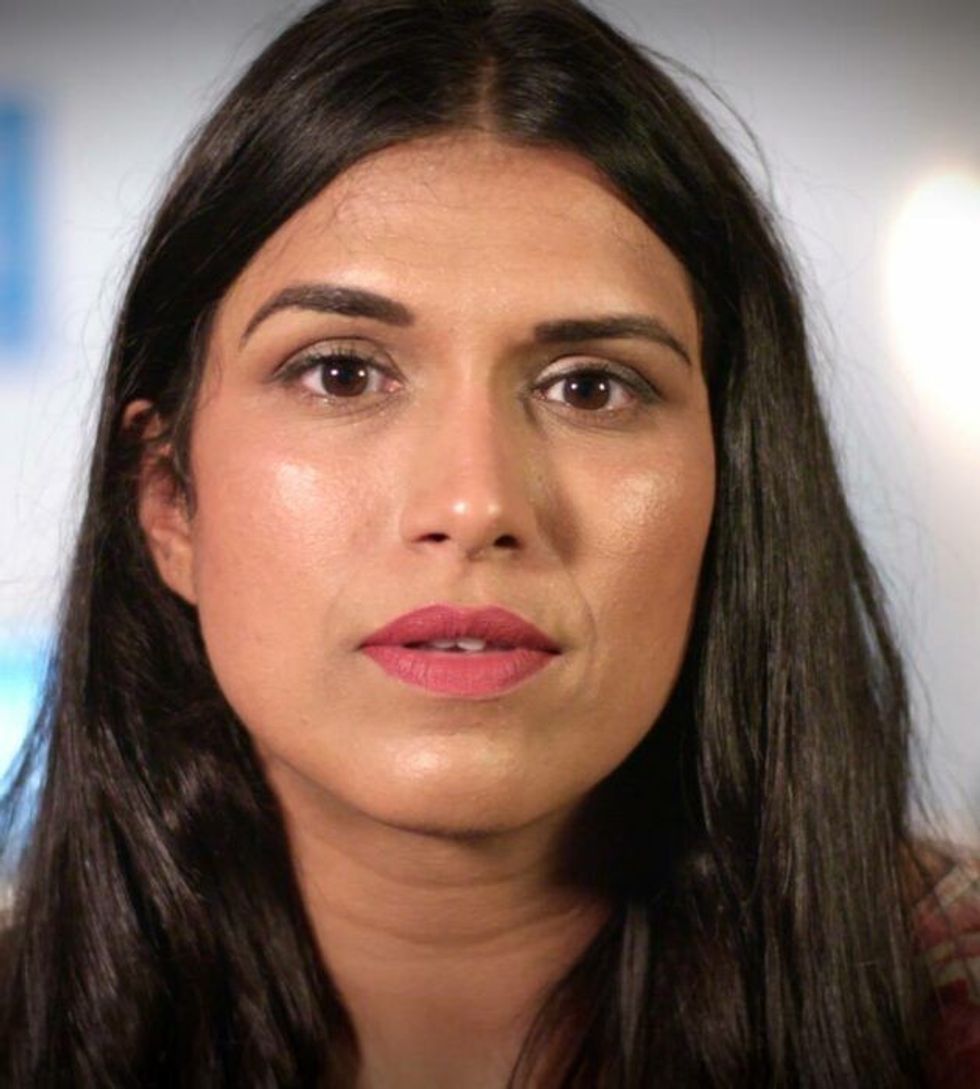
The charity’s executive director, Natasha Rattu, told Eastern Eye the FMU statistics are not a “good guide” to measuring the prevalence of forced marriage in the UK, partially owing to FMU’s changes in recording practices in 2021.
She added that this means the data in 2023 is not directly comparable with that of previous years, prior to 2020.
The change in recording practices relates to general enquiries potentially being guided to other sources for help or information, which means that some actions previously treated as cases are now treated as general enquiries.
“We sent a letter to (foreign secretary) David Cameron raising our concerns over the FMU’s data reporting,” said Rattu.
“And this year, we published a report where we cited our concerns, including people not having confidence in the unit - which is reflected in the low reporting the unit received, because Karma Nirvana, alongside other sector partners that work in this space, have seen increased reporting on these issues.”
Rattu described the Home Office’s response to her letter as “very disappointing”.
“There's definitely been a reduction in the unit’s level of work over the years. We've heard from professionals - like the police and social workers - that have contacted our helpline and have reported a lack of support from the FMU in providing assistance in cases that they've worked on,” said Rattu.
“We've been very vocal about whether the FMU is fit for purpose. Karma Nirvana have a real good oversight of the unit from its inception 20 years ago to where it is today and we can see the unit is not what it was, it's not carrying out what it set out to achieve when it was founded.”
Rattu added: “It can be a really vital government department and we’re keen for it to be a leader in dealing with forced marriage and be at the heart of the issue. We just feel it really isn't at the moment.”
The FMU data showed that a significant number of cases are related to south Asian countries.
Pakistan routinely accounts for the largest number of cases of forced marriages reported to the unit.
There were 138 cases (49 per cent) linked to Pakistan, of those 65 per cent were female and 35 per cent male. In 85 per cent of these cases, the victim was in the UK and the focus was on preventing the marriage before it was due to take place or preventing the victim from being taken abroad or forced to sponsor a spousal visa.
In 15 per cent of the cases, victims were overseas when the referral was made. In such cases, support is usually delivered through a combination of consular staff in-country and FMU staff in the UK.
In 29 cases (21 per cent) linked to Pakistan victims were known to be aged 17 and under, and 26 cases (19 per cent) were known to be aged 18 to 21.
Bangladesh was linked to 29 cases and India was linked to 20 cases.
Aneeta Prem, founder and CEO of Freedom Charity, which provides support to victims of forced marriage, said education was key to rooting out forced marriages in south Asian communities.
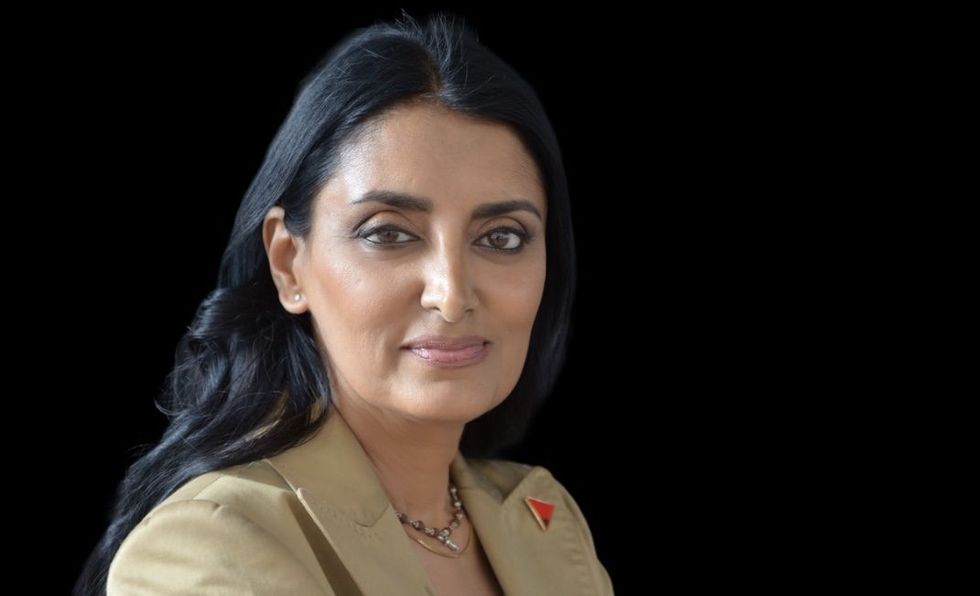
The FMU data showed a significant number of victims of forced marriages were under the age of 25. In 2023, 12 per cent of the cases involved victims were aged 15 and under; 13 per cent were aged 16 or 17 years old; 18 per cent were aged 18 to 21; and 16 per cent were aged 22 to 25.
“These figures are not just statistics; they represent individuals enduring significant dishonour and abuse. Our mission is to educate and empower communities to end these harmful practices,” Prem told Eastern Eye.
One survivor that Freedom helped told Eastern Eye: “I was just 16 when my parents told me we were going to Pakistan for a holiday to attend my cousin's wedding. To my horror, upon arriving in the village, I discovered I was the bride.
"I was raped on my wedding night and wasn't allowed to return to the UK until I was pregnant.”
The charity's efforts to tackle forced marriages includes distributing education materials and conducting workshops in UK schools.
More than 75,000 children have benefited from their programmes, which use Prem’s books, But It's Not Fair and Cut Flowers, as foundational texts. These books provide young readers with insights into the realities of forced marriage, equipping them with knowledge and strategies to oppose such practices.
"Education plays a crucial role in preventing forced marriages and aiming to end this crime within a generation. Arranged marriages can work well when they are consensual, but as soon as the freedom to choose is taken away, it becomes a forced marriage," said Prem. "We all play a role in protecting the most vulnerable among us."
Roshini, a Birmingham-based charity, helped 1,000 black and Asian women escape from physical, sexual and emotional harm last year. Their chief executive, Surwat Sohail, told Eastern Eye, “We've been very proactive in raising awareness among south Asian groups. However, whenever we run a campaign to raise awareness in a specific community, we start to see a higher number of cases coming through from that community.
“We used to do most of our work in Punjabi and Hindi. We felt we needed to reach out to other south Asian communities and the minute we did videos on south Asian TV, in different languages, such as Bengali, we saw a huge increase in our cases from that community.”
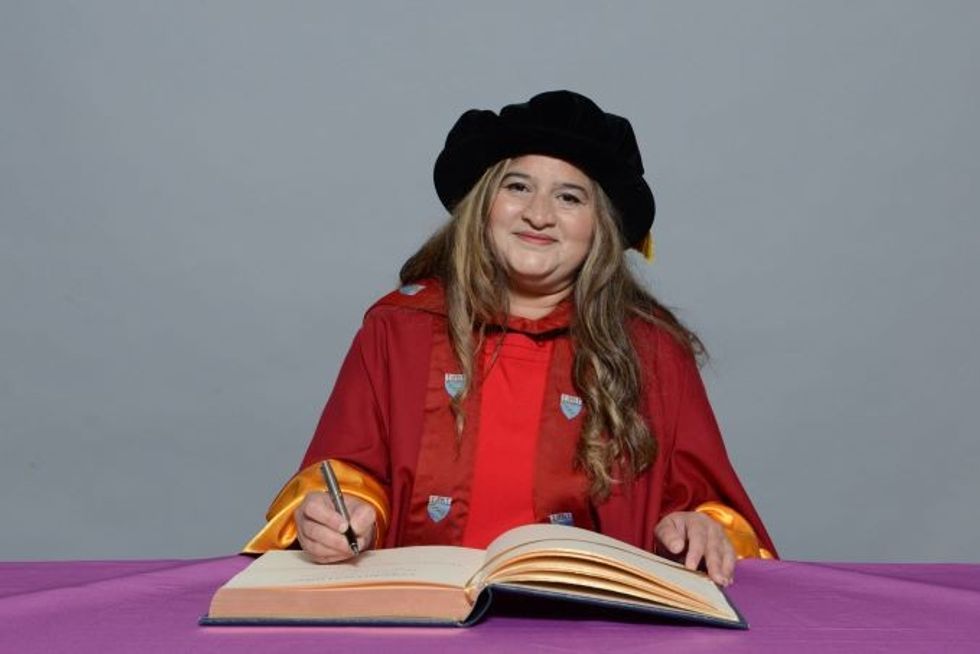
Sohail added: “Let's look at not blaming or putting these issues on particular cultures, but instead look at what are we not doing to reach out to other cultures who are suffering.
“It is wrong to assume a particular community has more issues. Forced marriage can happen to anyone from any culture. By labelling particular communities, we miss many victims from other communities as there hasn't been enough work done to raise awareness of forced marriages across all cultures.”
Sohail added that while Roshini mainly supports people from south Asian communities, some of the charity’s projects now offer support to people from other backgrounds due to their being a lack of specialised support for these communities.
Rattu agreed that looking at forced marriages as an “exclusively south Asian problem” could lead to it being missed in other communities. “One example we see in the UK is related to the traveller communities where child marriage, forced marriage is a huge problem, but not as acknowledged or recognised as it is within the south Asian community,” she said.
Campaigners said the under-reporting of forced marriages by the FMU could have a negative long-term impact in supporting victims across all cultures.
“There is a bit of misleading, because what this data suggests is it's (forced marriages) not as wide scale as we are saying it is,” said Khan.
“Organisations and the general public will think it doesn’t really happen in their local areas. Well, it does; it happens in every single local authority.
“That’s why we need more services commissioned to support victims of forced marriages because sometimes victims only get that one opportunity to get the help that they need. If they've been failed at the first point of help, then they're not going to come back, sadly. If they receive a lack of response, or not the right response, they are not going to want to keep coming back for advice.”
A Home Office spokesperson told Eastern Eye: “Forced marriage is a hidden crime, and today’s figures will not reflect the full scale of the abuse. As such, we cannot say whether forced marriage as a whole is going up or down.
“That’s why the Forced Marriage Unit runs an extensive outreach programme to raise awareness of forced marriage and how best to support victims and encourages professionals to seek advice.
“In 2023, we delivered training to 3656 UK professionals, representing an increase of 138 per cent compared with 2022.
“We remain committed to providing support and advice to victims. The Home Office is providing up to £165,000 this year to part-fund the national honour-based abuse helpline, run by the charity Karma Nirvana. Southall Black Sisters also receives £25,000 per year to support victims of forced marriage who have returned from overseas.”
'Measuring extent of abuse'
THE government last year enlisted the help of academics to investigate the extent of forced marriage and female genital mutilation (FGM) in the UK and develop interventions to tackle these two crimes.
The researchers are working with key stakeholders, including government agencies, third-sector organisations, academics and community organisations, to identify where information is available and what measurement methods could be used to tap into this information. The data will feed into the development of a comprehensive measurement tool that can be used to determine the prevalence of these hidden crimes.

Lead researcher Dr Rowland Seymour, of the University of Birmingham’s School of Mathematics, has teamed-up with Dr Helen McCabe, an expert in forced marriage, and Dr Katie Severn, a mathematician, from the University of Nottingham.
“Measurement is crucial in identifying who needs to be protected from female genital mutilation and forced marriage. It’s only by understanding the scale of the problem that we can seek full accountability through our criminal justice system,” said Seymour.
McCabe said the research was key to developing “evidence-based policies” to target the issues of forced marriages and FGM.
“We currently have no clear idea about the prevalence of forced marriage or FGM in the UK,” she said.
“This makes it very difficult to generate evidence-based policy, and to understand what interventions work. This project offers an exciting opportunity to develop tools for generating this much-needed baseline data on prevalence, from which more effective policy and action can be built.”
